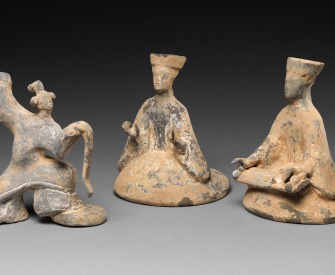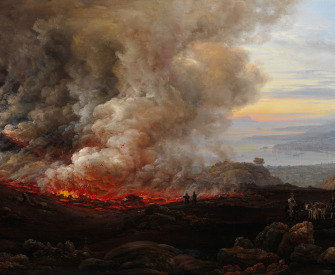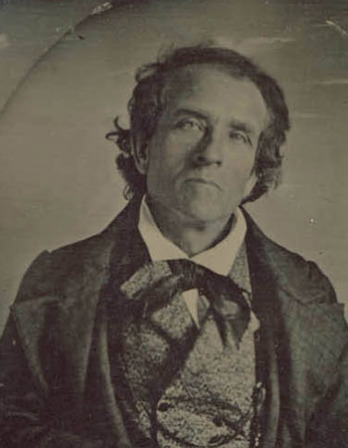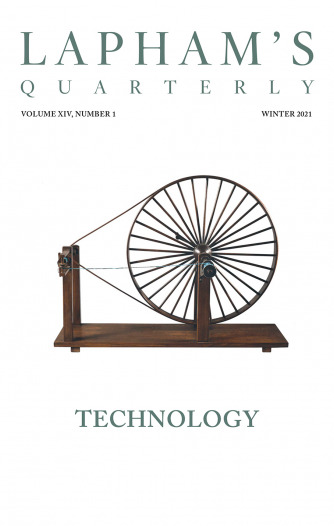You, O King from afar, have yearned after the blessings of our civilization and, in your eagerness to come into touch with our converting influence, have sent an embassy across the sea bearing a memorial. I have already taken note of your respectful spirit of submission, have treated your mission with extreme favor and loaded it with gifts, besides issuing a mandate to you, O King, and honoring you with the bestowal of valuable presents. Thus has my indulgence been manifested.
Yesterday your ambassador petitioned my ministers to memorialize me regarding your trade with China, but his proposal is not consistent with our dynastic usage and cannot be entertained. Hitherto all European nations, including your own country’s barbarian merchants, have carried on their trade with our Celestial Empire at Canton. Such has been the procedure for many years, although our Celestial Empire possesses all things in prolific abundance and lacks no product within its borders. There was therefore no need to import the manufactures of outside barbarians in exchange for our own produce. But as the tea, silk, and porcelain that the Celestial Empire produces are absolute necessities to European nations and to yourselves, we have permitted, as a signal mark of favor, that foreign hongs should be established at Canton, so that your wants might be supplied and your country thus participate in our beneficence. But your ambassador has now put forward new requests that completely fail to recognize the throne’s principle to “treat strangers from afar with indulgence” and to exercise a pacifying control over barbarian tribes the world over. Moreover, our dynasty, swaying the myriad races of the globe, extends the same benevolence toward all. Your England is not the only nation trading at Canton. If other nations, following your bad example, wrongfully importune my ear with further impossible requests, how will it be possible for me to treat them with easy indulgence? Nevertheless, I do not forget the lonely remoteness of your island, cut off from the world by intervening wastes of sea, nor do I overlook your inexcusable ignorance of the usages of our Celestial Empire. I have consequently commanded my ministers to enlighten your ambassador on the subject and have ordered the departure of the mission. But I have doubts that after your envoy’s return, he may fail to acquaint you with my view in detail or that he may be lacking in lucidity, so that I shall now proceed to take your requests one by one and to issue my mandate on each question separately. In this way you will, I trust, comprehend my meaning.
(1) Your ambassador requests facilities for ships of your nation to call at Ningbo, Zhoushan, Tianjin, and other places for purposes of trade. Until now trade with European nations has always been conducted at Macao, where the foreign hongs are established to store and sell foreign merchandise. Your nation has obediently complied with this regulation for years past without raising any objection. In none of the other ports named have hongs been established, so that even if your vessels were to proceed thither, they would have no means of disposing of their cargoes. Furthermore, no interpreters are available, so you would have no means of explaining your wants, and nothing but general inconvenience would result. For the future, as in the past, I decree that your request is refused and that the trade shall be limited to Macao.
(2) The request that your merchants may establish a repository in the capital of my empire for the storing and sale of your produce is even more impracticable than the last. My capital is the hub and center about which all quarters of the globe revolve. Its ordinances are most august and its laws are strict in the extreme. The subjects of our dependencies have never been allowed to open places of business in Beijing. Foreign trade has hitherto been conducted at Macao because it is conveniently near the sea, and therefore an important gathering place for the ships of all nations sailing to and from. If warehouses were established in Beijing, the remoteness of your country lying far to the northwest of my capital would render transport extremely difficult. Possessing facilities at Macao, you now ask for further privileges at Beijing, although our dynasty observes the severest restrictions respecting the admission of foreigners within its boundaries and has never permitted the subjects of dependencies to cross the empire’s barriers and settle at will among the Chinese people. This request is also refused.
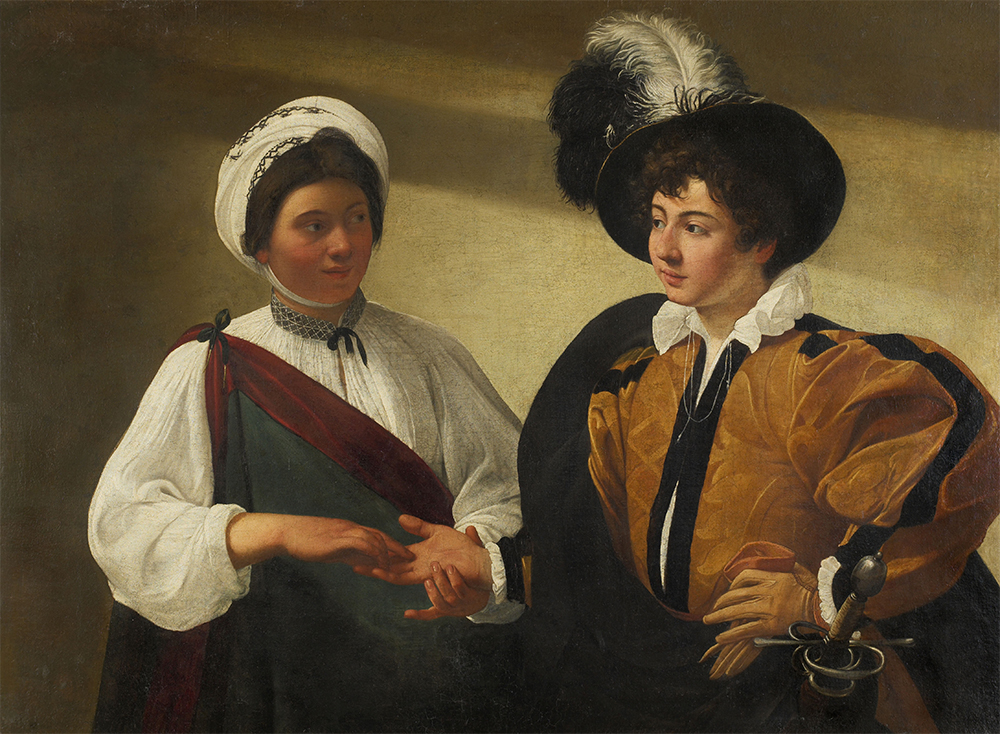
The Fortune Teller, by Caravaggio, c. 1595. © Musée du Louvre, Dist. RMN-Grand Palais / Art Resource, NY.
(3) Regarding your nation’s worship of the Lord of Heaven, it is the same religion as that of other European nations. Ever since the beginning of history, sage emperors and wise rulers have bestowed on China a moral system and inculcated a code, which from time immemorial has been religiously observed by the myriads of my subjects. There has been no hankering after heterodox doctrines. Even the European missionary officials in my capital are forbidden to hold intercourse with Chinese subjects; they are restricted within the limits of their appointed residences and may not go about propagating their religion. The distinction between Chinese and barbarian is most strict, and your ambassador’s request that barbarians shall be given full liberty to disseminate their religion is utterly unreasonable.
It may be, O King, that the above proposals have been wantonly made by your ambassador on his own responsibility, or perhaps you yourself are ignorant of our dynastic regulations and had no intention of transgressing them when you expressed these wild ideas and hopes. I have ever shown the greatest condescension to the tribute missions of all states that sincerely yearn after the blessings of civilization, so as to manifest my kindly indulgence. I have even gone out of my way to grant any requests that were in any way consistent with Chinese usage. Above all, upon you, who live in a remote and inaccessible region, far across the spaces of ocean, but who have shown your submissive loyalty by sending this tribute mission, I have heaped benefits far in excess of those accorded to other nations. But the demands presented by your embassy are not only a contradiction of dynastic tradition but would be utterly unproductive of good result to yourself, besides being quite impracticable. I have accordingly stated the facts to you in detail, and it is your bounden duty reverently to appreciate my feelings and to obey these instructions henceforward for all time, so that you may enjoy the blessings of perpetual peace. If after the receipt of this explicit decree you lightly give ear to the representations of your subordinates and allow your barbarian merchants to proceed to Zhejiang and Tianjin, with the object of landing and trading there, the ordinances of my Celestial Empire are strict in the extreme, and the local officials, both civil and military, are bound reverently to obey the law of the land. Should your vessels touch shore, your merchants will assuredly never be permitted to land or to reside there but will be subject to instant expulsion. In that event, your barbarian merchants will have had a long journey for nothing. Do not say that you were not warned in due time! Tremblingly obey and show no negligence! A special mandate!
From an edict issued to the British East India Company. The Macartney mission had arrived in China in 1793. “To make society as happy as the imperfection of our nature will admit,” diplomat George Macartney said, “nothing is wanting but a free and unrestrained intercourse with China.” But the fourth emperor of the Qing dynasty, skeptical about the British Empire’s reach, dismissed the envoy, who refused to kowtow before him. Historians have marked the encounter as an antecedent to the first Opium War.
Back to Issue


